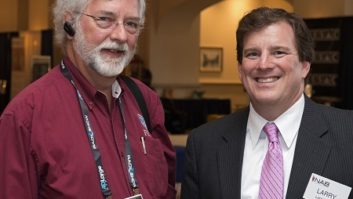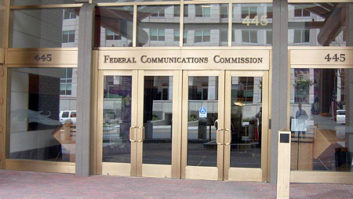A ‘sunset’ for FM radio? No more analog receivers? How would mechanics of a digital migration work?
These questions seem idle speculation to a U.S. reader but in the United Kingdom they are issues that may become pressing if Britain moves forward along a path being suggested by a study group.
As early as 2017, Britain could migrate its radio industry to digital. That’s the outlook in the final report by the Digital Radio Working Group, which set out a timetable for migration of radio in the United Kingdom to a DAB platform.
The group renewed its commitment to Digital Audio Broadcasting and spelled out criteria that should be met. To trigger full digital migration, the group said, at least half of total radio listening should already occur on digital platforms; national multiplex coverage should be comparable to that of FM today; and local digital multiplexes should reach at least 90% of the population.
Read the DRWG’s summary here.
The group would like to see a three-tier system of radio in the U.K. including national digital radio services from the BBC and commercial radio; a “sustainable set” of local digital services from the BBC and commercial radio; and a tier of small-scale services focused on the local community that would remain analog until later.
Officials are expected to use this report as part of a larger “Digital Britain” project.
According to a summary from the Financial Times, by 2020 there is likely to be no analog radio broadcasting at all in the U.K., according to the report. “The findings are likely to be broadly accepted by the government according to people with detailed knowledge of the process, but the call for direct subsidy so that rural areas can be served by commercial stations is a more controversial request,” the publication reported.
Frontier Silicon hailed the recommendations, which it said “coincide with continued growth in digital radio, rising at 18 percent annually with more than 2 million new devices sold in the current year.” Anthony Sethill, its chief executive, said DAB sets outsell analog models by a ratio of six to one. “As and when the government adopts the recommendations of this report, we will see the success of digital television repeated in radio within the next 10 years.”
DAB proponents said there are 8 million digital radios in use in Britain, that DAB radio has seen 18% year-on-year growth since 2004 and that more than a quarter of U.K. households have digital radios. Many millions of consumers more than that, however, have analog radios; any move that would make the current analog infrastructure inoperable is likely to be contentious for consumers and expensive for broadcasters.
The Daily Telegraph quoted commercial broadcasters as saying they would need government or BBC financial help. A writer in the Guardian stated that the group “ducked the core issues of the switchover from DAB to DAB+ — which it must know is inevitable — in the switchover from analog to digital. … The basic problem is that the adoption of DAB is too poor for digital stations to be financially viable, and there aren’t enough users to make a date for a digital switchover, i.e., a move from analog radio (AM and FM) to digital radio (DRM and DAB).”
Press quotes above were distributed by Frontier Silicon.








